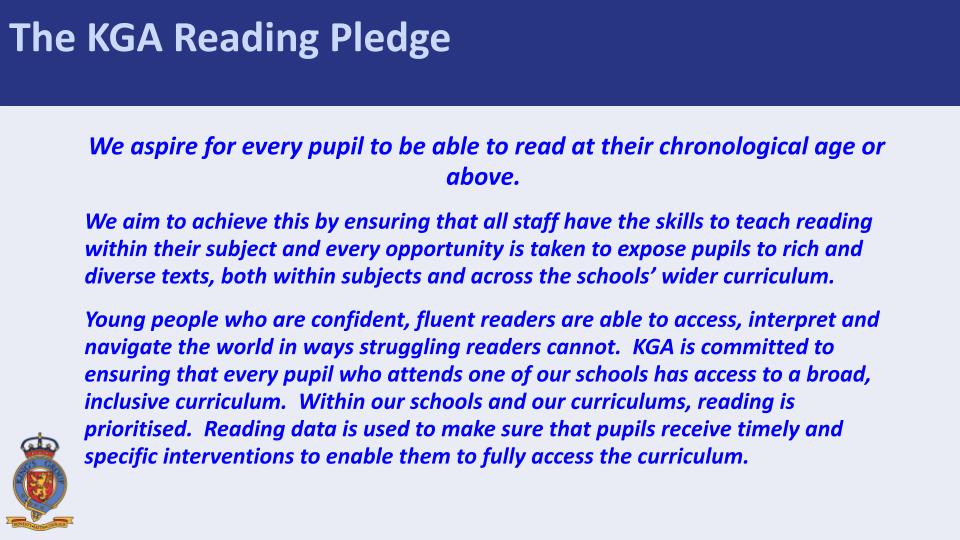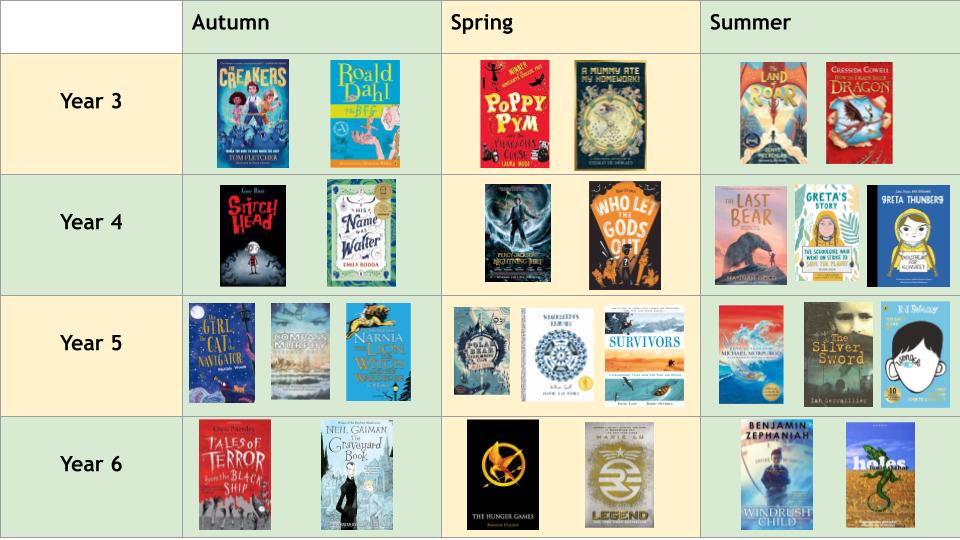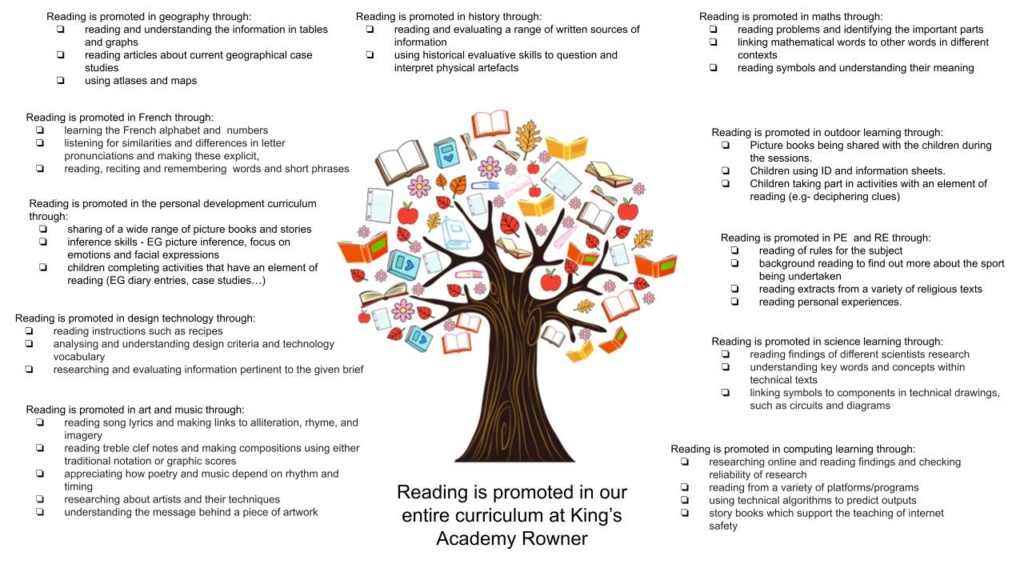“The more that you read, the more things you will know. The more you learn, the more places you’ll go.”— Dr. Seuss, “I Can Read With My Eyes Shut!”
We love to read at Rowner and find as many opportunities to do so. We recognise that reading is an essential skill. It develops the brain, provides a window into the world around us and helps us do better in all school subjects.

At Rowner, we believe high-quality reading experiences foster a love of reading. We aim to create confident, fluent readers who deeply comprehend texts and value reading for pleasure. We teach comprehension and sight reading and inspire appreciation for our rich literary heritage, encouraging children to read widely and often. Reading is central to our curriculum, serving as a gateway to broader learning opportunities. A shared language of reading among staff and pupils ensures purposeful discussions. We strive to remove literacy barriers to ensure equity and success for all children.
Exciting Reads for the Year Ahead

Reading Curriculum
Reading is integrated into all curriculum areas at Rowner. Children read to be informed and entertained across a range of subject areas – we have a genre map to ensure good coverage. Reading is a consistent expectation for Home Learning and parents are kept well informed of their child’s progress through termly learning review meetings and banded books.

Decoding and Phonics
We pay close attention to the KS1 phonics screening. All pupils who did not pass the screening at KS1 automatically begin intervention with our phonics learning support assistant. This is done either on a 1:1 or group basis depending on need. We currently follow Read Write Inc to complement the approach of Rowner Infant. Children will be regularly assessed in order to track their progress. Please see our phonics page for more information – see here.
Comprehension Learning

Implementation
The implementation of our reading intent is through a tiered approach. Tier one is provided for all pupils across the school; tier two is group intervention or additional support to close specific gaps, tier three is bespoke individual intervention tailored to identified needs.
Tier one:
Reading lessons:
We take a whole class approach to structured reading lessons. Reading is taught across the curriculum and the texts pupils engage with are linked to their English and wider curriculum learning, as well as some chosen to encourage reading for pleasure. In our reading scrapbooks children are explicitly taught this has really helped embed a consistent language of reading across the entire school, alongside skills from the national curriculum and a focus on tiered 2 and 3 vocabulary.
Explicitly taught in reading journals (and applied across the curriculum):
- Linking to previous background knowledge and making connections to other texts/experiences.
- Making predictions
- Identifying VIP (very important) words, phrases and ideas
- Noticing a meaning breakdown (something that doesn’t make sense) and repairing it (re-reading) Inferring – looking for clues and being a reading detective
- Piecing everything together and finding the gist (main points) of the text
- Thinking like a detective – making inferences

Text marking is a skill taught school wide – the aim is to make meaningful annotations, which leads to enhanced meaning of the text (and a chance to explicitly link some of our strategies). There is a focus on talking through the metacognition of reading and unpicking a text and this is regularly modelled to children, in particular, how application of the strategies can overcome barriers to true understanding.
Reading cycle
We take a scrapbook approach to guided reading, children have ownership over how most tasks are presented and organised, this has hugely improved engagement in the subject and allows them room to be creative and really engage with texts. Our learning journey in guided reading follows a two weekly cycle. This always begins a text masking a text which enhance background knowledge for other areas of the curriculum. During the first few sessions children will work alongside their teach to text mark and decode the text. There is always a focus on tier two and three vocabulary.
Example two week cycle used in the lower school
| Week 1 | |
| Day 1 and 2 | Text marking with a focus on tier 2 and 3 vocabulary. |
| Day 3 | Tier 2 and 3 vocabulary focus |
| Day 4 | Model National Curriculum skill – Use the progression document for national curriculum guidance. |
| Day 5 | Children apply the skill taught yesterday |
| Week 2 | |
| Day 1 | Model Rowner Reading Strategy Skill |
| Day 2 | Apply Rowner reading Strategy |
| Day 3 and 4 | Comprehension questions about the text using the different strands. Recapping previous taught skills |
| Day 5 | Speed Read |
These activities will create 1 or 2 double pages. See appendix of a good example.
Text marking text example from year 3:

Text copied from source highlighted tier 2 and 3 vocabulary
Definition of vocabulary tiers:
Tier 1 – high frequency in spoken language (table, slowly, write, horrible)
Tier 2 – high frequency in written texts (gregarious, beneficial, required, maintain)
Tier 3 – subject specific, academic language
Example double page below


English lessons:
English lessons are an opportunity to apply specific reading strategies, engage children with a wide range of texts and look more closely about the choices made by authors. We are an Opening Doors school, whose philosophy is to plan to the top, but ensure everyone is supported in gaining access to high quality (often heritage texts) in way that is enjoyable, challenging and enhances both reading and writing. Reading underpins all our writing units, with a ‘big’ reading question that is often genre or audience specific. An example big question may be ‘How did JM Barry create a subtle sense of danger when writing about The Jolly Roger (Peter Pan)?’

Our English curriculum aims to enable childen to:
- Develop inference and deduction skills
- Be exposed to increasingly challenging texts
- Write in varied styles – appropriate to context and audience
- Produce well-crafted and sustained writing – learning through reading examples where the author has made deliberate choices e.g irony, humour etc…
- Use punctuation and grammar in accurate and varied ways to enhance meaning and maintain the fidelity of our language
Individual reading (book bands):
All pupils have an appropriately banded reading book (this is supported by benchmarking assessments). Pupils are expected to read at home regularly. Our book band system suits the needs of all readers from non-worded books up to catering for children who are reading at greater depth in Year 6.
Whole year group reading experiences:
Every year group has a whole class reading experience every day. Texts are chosen to engage and enthuse readers as well as provide experiences of a wide range of texts/genre. A balance of heritage texts, modern choices and choices by the children are utilised throughout the year. Links, where appropriate, are made to the English learning and the wider curriculum e.g The Black Ship linked to the pirate project unit in Year 6. This time provides a good opportunity for adults and children to discuss the texts in more detail, modelling the metacognition of a reader.
Access to library: Our library provides opportunities for all pupils to choose and share books for enjoyment. Library club at lunchtime enables pupils to be guided in their choices of books by school pupil librarians. Teachers are responsible for ensuring that the library books are appropriately challenging. The children requested access to the library at lunchtime and now run a lunchtime library club where the review books, pair read and is a place for children to read quietly.
Let’s Think English:
Let’s Think in English primary programme consists of a suite of high-interest lessons which are intended to be used fortnightly from Year 3 to Year 6. They are largely oral, based on reading, open-ended questioning and structured group discussion which increases pupils’ reasoning skills and metacognition (structured reflection). This makes pupils more aware of their thinking processes and how they think most effectively. Lessons develop pupils’ ability to provide reasoned justifications for their views, predict, summarise and draw inferences when reading texts. Furthermore, through LTE pupils identify how language, structure and presentation contribute to meaning, examine authors’ choice of language and other stylistic features and consider the purpose of the text. Pupils develop their higher-order reading skills (and subsequently writing) through group discussion and sharing their views.
Tier two:
Additional one to one reading:
Pupils are heard regularly by adults across the year group. Disadvantaged and SEND learners are heard as often as possible (at least twice a week) to ensure any barriers of reading at home are overcome. This can include the Toe by Toe intervention (targeting decoding) or the Stride Ahead intervention (which focuses on comprehension).
Tier three:
Tier 3 support and intervention follows additional assessment via the SEND/Inclusion team. Where a need is identified in both decoding and understanding of text the following interventions are implemented:
- Heathfield outreach
- Adjusted curriculum provision
- 1:1 interventions
- Paired reading
- FFT reading intervention
- Read, Write, Inc (recommissioned by DFE 2021).